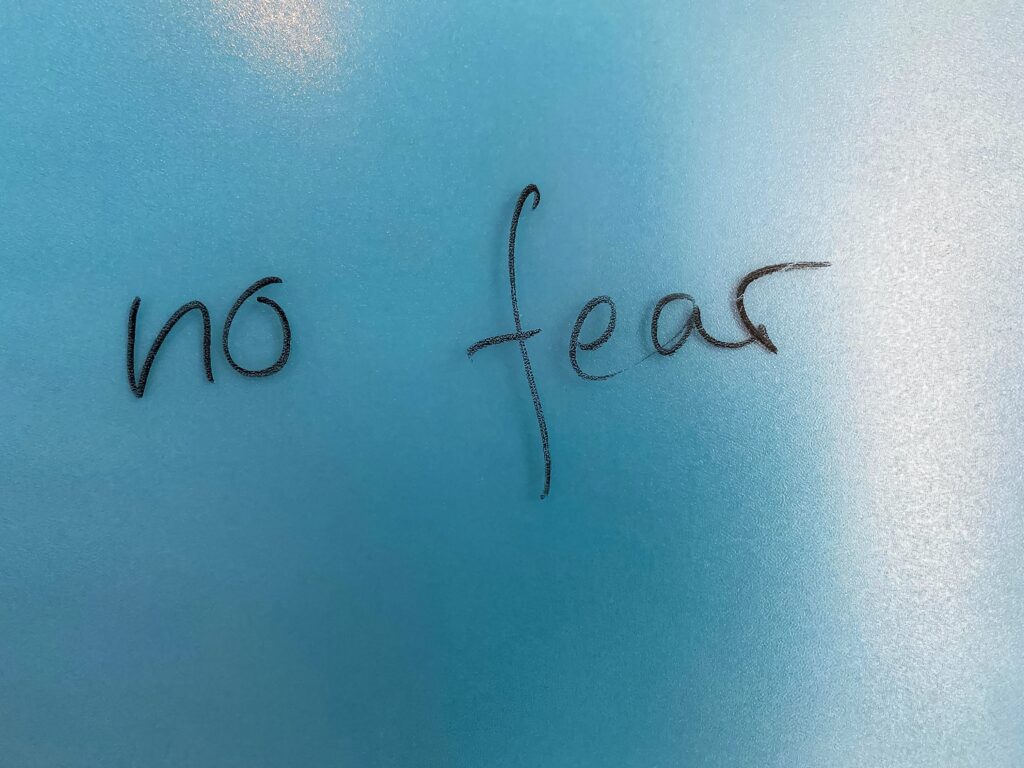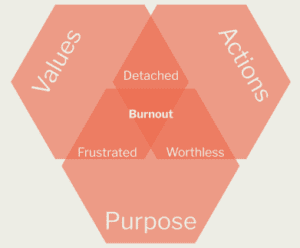
What Is Emotional Intelligence In Leadership?
1. Defining Emotional Intelligence In Leadership
Emotional intelligence in leadership refers to a leader’s ability to understand and manage their own emotions and those of others effectively. This concept, encompassing self-awareness, self-regulation, empathy, and social skills, is crucial for successful leadership. Daniel Goleman popularised this concept in his 1995 book “Emotional Intelligence” and elaborated on it further in his influential Harvard Business Review article in 1998.
Goleman’s research revealed that traditional leadership traits like toughness and vision, while important, are insufficient on their own. Effective leaders distinguish themselves through high emotional intelligence, which enables them to navigate complex interpersonal dynamics, inspire teams, and drive performance.
Emotional Intelligence (EI) is sometimes referred to as EQ (emotional quotient), and differs from IQ (intelligence quotient). Where IQ will help you to understand a problem, EI or EQ will help you to articulate that problem to others in a way that resonates with them using empathy; IQ might help you to formulate a plan during a crisis, but EI/EQ will help you cope with the emotional ride and stress generated during a crisis, and help you to turn insights and intentions into meaningful actions, also enabling you to execute the plan more effectively, and helping you to help others through difficult periods and stressful tasks, by connecting with others on a personal level and communicating ideas and instructions effectively.
2. What Makes Up Emotional Intelligence (EI)?
Emotional intelligence encompasses a set of skills that enable individuals to recognise, understand, and manage their own emotions, as well as the emotions of others. It involves:
- Self-awareness: Recognising and understanding one’s own emotions, strengths, weaknesses, values, and motivations. Self-aware leaders are attuned to their feelings and behaviours, allowing them to make conscious choices and respond thoughtfully to situations.
- Self-regulation: The ability to control one’s emotions, impulses, and reactions, particularly in challenging or stressful situations. Leaders with strong self-regulation skills can manage their emotions effectively, maintain composure under pressure, and adapt to changing circumstances without becoming overwhelmed or reactive.
- Empathy: Understanding and vicariously experiencing the emotions, thoughts, and perspectives of others. Empathetic leaders demonstrate compassion, sensitivity, and a genuine concern for the well-being of their team members. By recognising and validating the feelings of others, empathetic leaders foster trust, rapport, and collaboration within their teams.
- Social Skills: A range of interpersonal abilities, including communication, conflict resolution, collaboration, and influence. Leaders with strong social skills are adept at building relationships, inspiring others, and navigating complex social dynamics effectively. They communicate clearly and persuasively, listen actively, and foster an inclusive and supportive work environment.
Overall, emotional intelligence plays a crucial role in leadership effectiveness by enhancing self-awareness, self-management, social awareness, and relationship management. Leaders who possess high emotional intelligence are better equipped to inspire and motivate their teams, build trust and rapport, resolve conflicts constructively, and drive positive organisational outcomes.

3. Why Is Emotional Intelligence Important In Leadership?
Emotional intelligence (EI) is paramount in leadership due to its profound impact on individual and organisational success. Daniel Goleman’s pioneering work in emotional intelligence revealed compelling evidence of its significance in leadership effectiveness.
His research, outlined in his book “Emotional Intelligence” and subsequent articles, underscores the critical role of EI in driving superior performance among leaders and their teams. Across nearly 200 companies, including prominent corporations like Credit Suisse and British Airways, Goleman found that traditional leadership qualities like toughness, vision, and determination, while important, are insufficient for sustained success.
Instead, Goleman identified emotional intelligence as the distinguishing factor among truly effective leaders. EI, comprising components such as self-awareness, self-regulation, empathy, and social skill, emerged as the linchpin of leadership excellence. Leaders with high EI levels demonstrate a deep understanding of their own emotions and behaviours, allowing them to navigate complex interpersonal dynamics with finesse and authenticity.
Bradberry and Greaves’ research further reinforces the pivotal role of EI in organisational success. Their study revealed that individuals with high emotional intelligence outperform their peers across various roles and industries, with EI accounting for a staggering 58% of success in all types of jobs. This finding underscores the far-reaching impact of EI on individual performance and organisational outcomes.
Furthermore, McClelland’s research within a global food and beverage company demonstrated a clear link between leaders’ EI capability and divisional performance. Divisions led by leaders with a critical mass of EI exhibited a remarkable 20% outperformance compared to those lacking such EI prowess. This evidence underscores the tangible benefits of fostering emotional intelligence in leadership.
Beyond quantitative metrics, emotional intelligence fosters a culture of trust, collaboration, and innovation within organisations. Leaders who possess high EI levels are adept at inspiring and motivating their teams, fostering psychological safety, and nurturing a sense of belonging among employees. By demonstrating empathy, understanding, and effective communication, emotionally intelligent leaders create an environment where individuals feel valued, respected, and empowered to contribute their best efforts.
In today’s evolving business landscape, characterised by uncertainty, complexity, volatility, ambiguity, and rapid change, the importance of emotional intelligence in leadership cannot be overstated. Leaders who prioritise the development of EI skills not only enhance their own effectiveness but also cultivate resilient, high-performing teams capable of thriving in dynamic environments. As such, investing in the cultivation of emotional intelligence is not just a strategic imperative but a moral obligation for leaders committed to driving sustainable organisational success.
4. Does Leadership Require Emotional Intelligence?
Research by organisational psychologist Tasha Eurich unveils a startling truth: while a staggering 95% of individuals believe they possess self-awareness, empirical data suggests that only a mere 10 to 15% truly exhibit this essential trait. This revelation challenges conventional wisdom and prompts leaders to question their assumptions about their own emotional intelligence.
Consider this: if you believe emotional intelligence is unnecessary for effective leadership, ask yourself whether you are among the small fraction who genuinely possess self-awareness. Eurich’s findings underscore the critical need for leaders to cultivate emotional intelligence as a foundational skill, rather than assuming its presence based on intuition alone.
5. Is Emotional Intelligence Vital In Leadership?
Daniel Goleman’s extensive research highlights the paramount importance of emotional intelligence in distinguishing exceptional leaders. While traditional leadership qualities like toughness and vision are undoubtedly valuable, his work indicates they are insufficient on their own. Studies of nearly 200 companies, including global corporations like Credit Suisse and British Airways, reveal a compelling correlation: leaders with a high degree of emotional intelligence consistently outperform their peers.
Bradberry and Greaves’ research reinforces this notion, revealing that individuals with high emotional intelligence outperform their peers in a staggering 90% of cases. In contrast, those with merely average IQs outperform those with the highest IQs 70% of the time. These statistics underscore the transformative impact of emotional intelligence on individual and organisational success.
6. How Does EI/EQ Contribute To Effective Leadership?
Emotional intelligence serves as the bedrock of effective leadership, offering profound benefits that extend far beyond individual performance. Leaders endowed with emotional intelligence are better equipped to navigate the complexities of human interaction, resolve conflicts, and inspire their teams to achieve extraordinary results.
Moreover, Goleman’s research demonstrates a direct correlation between emotional intelligence and tangible business outcomes, with emotional intelligence emerging as twice as likely as other factors to drive effective performance. As leaders ascend to higher levels of leadership, the significance of emotional intelligence becomes even more pronounced, overshadowing technical abilities in its importance.
7. How to improve Emotional Intelligence in leadership
Unlike IQ, which is often perceived as fixed, emotional intelligence (EI) is a flexible competence that can be cultivated and honed over time. Goleman (1998) emphasises this point by highlighting the interplay between genetic predispositions and environmental factors in shaping EI. While there may be inherent traits that influence one’s emotional intelligence, both research and practice demonstrate that it is a skill that can be learned and developed.
Goleman underscores that effective training in EI involves targeting the limbic system, the part of the brain responsible for processing emotions. By focusing on genuine motivation to change, extended practice, and feedback mechanisms, leaders can effectively rewire their neural pathways and break old behavioural habits. However, Goleman cautions that this process is not instantaneous; it requires dedication, patience, and an individualised approach, often facilitated through coaching.
With this understanding, leaders can approach the journey of enhancing their emotional intelligence with confidence, knowing that their efforts are supported by empirical evidence and proven methodologies. By embracing the notion that EI is a malleable skill set, leaders can embark on a transformative learning experience that unlocks their full potential and empowers them to lead with greater empathy, self-awareness, and effectiveness.
8. Tools For Developing Emotional Intelligence
There are lots of ways to develop your own EI/EQ journey and become a more thoughtful, emotionally stable, and supportive leader. The most important thing is to remember that this is a journey of discovery and self-development, and you should take the time to reflect on situations and interactions with your leaders, peers, and those reporting to you.
Self-reflection will help to guide your future interactions and improve your relationships at work, also having a positive effect on those you spend time with away from the workplace. Try these thoughtful exercises to develop your own E!/EQ, and work towards being a more successful leader of people:
8.1. The “I noticed… I felt… because… can we… so that…” framework
This framework fosters empathy and facilitates constructive dialogue. Here’s how it works:
- I noticed: State your observation of a situation or behaviour.
- I felt: Express the emotions you felt in response to the situation.
- because: Briefly explain why you felt that way.
- can we: Pose a question inviting collaborative discussion.
- so that: State the desired outcome of the conversation.
Here’s an example of this framework in use:
“I noticed during our team meeting that you seemed withdrawn and disengaged when discussing the upcoming project deadline. I felt concerned because your input is crucial to our team’s success, and I believe your perspective could greatly benefit our planning process. Can we set aside some time to discuss what may be causing your disengagement and explore ways to overcome it? So that we can find solutions that work for both of us and ensure our team operates effectively and harmoniously.”
By utilising this framework, leaders simultaneously raise their own self awareness and the ability for the other person to empathise with them. You are essentially ‘gifting’ emotional intelligence. With a request like this that shows a willingness to communicate, collaborate and find creative solutions, you can create a safe space for sharing perspectives and addressing concerns, ultimately strengthening team dynamics and collaboration.
8.2. Prioritising Self-Empathy
Acknowledge and validate your own feelings and experiences. This helps you navigate challenging situations with clarity and composure. By addressing your own emotional filters before engaging with others, you can approach conversations with authenticity and empathy, fostering psychological safety and trust within your team. Remember, feelings are neither right nor wrong; it’s what we do with them that truly matters.
8.3. The Hive’s Definition of Empathy
“Having the courage to embark on a journey to understand how someone arrived at their seemingly absurd point of view.” This perspective serves as a powerful reminder that behind every behaviour lies a story. Taking the time to understand the underlying motivations and experiences of others fosters deeper connections and mutual respect within teams.
Remember, how someone reacts emotionally in the moment to a situation often bears no resemblance to how they respond once they have calmed their emotional state and considered it rationally. Time is a powerful resource in a leader’s emotional intelligence tool kit.
8.4. Four Tips For Fostering Emotional Intelligence:
- Actively seek feedback from your team members and truly listen to their perspectives.
- Practice self-reflection to enhance your self-awareness.
- Embrace vulnerability and openness in your leadership style.
- Give people time to process their own emotions and respond with emotional intelligence.
8.5. Five Steps For Leaders To Develop Their Emotional Intelligence:
- Practice Empathy in Difficult Conversations: Understand the other person’s perspective to build stronger relationships and make informed decisions.
- Seek Feedback and Actively Listen: Foster open communication and trust within your team.
- Cultivate Self-Awareness: Understand your own emotions, strengths, and areas for growth to lead more effectively.
- Practise the “I Noticed, I Felt, Because” Framework: Provide constructive feedback and communicate effectively.
- Lead with Authenticity: Be genuine and build stronger connections with your team.
By incorporating these practices into your leadership style, you can enhance your emotional intelligence and create a more supportive and collaborative work environment.

9. Conclusion
Emotional intelligence is a cornerstone of effective leadership in today’s workplace. It empowers leaders to navigate complex situations, inspire teams, and drive organisational success. By investing in the development of emotional intelligence, organisations can cultivate a positive work culture, foster innovation, and achieve sustainable growth.
As we navigate the challenges and opportunities of the future, emotional intelligence is a crucial skill for leaders to embrace. Let’s leverage its power to create thriving workplaces where individuals can flourish and contribute to collective success.
References:
Goleman, D. (1998) What Makes a Leader, Harvard Business Review, pp 82-91
Bradberry, T. & Greaves, J. (2009). Emotional intelligence 2.0. San Diego, CA: TalentSmart quoted in Broughton, N., et al (2017), The Evolution of Emotional Intelligence, International Journal of Business and Social Science, Volume 8, Number 6, June 2017
World Economic Forum (2017). Emotional Intelligence: What it is and why you need it
Eurich, T. (2018) Harvard Business Review
Landry, L. (2019) Harvard Business School Online Blog
McClennan et al (2017) Emotional Intelligence and Positive Organizational Leadership: A Conceptual Model for Positive Emotional Influence,Institute of Behavioral and Applied Management
Kahneman, D. (1995). Emotional Intelligence (Print)
The Hive Change Consultancy (Internal Research Material)


















































